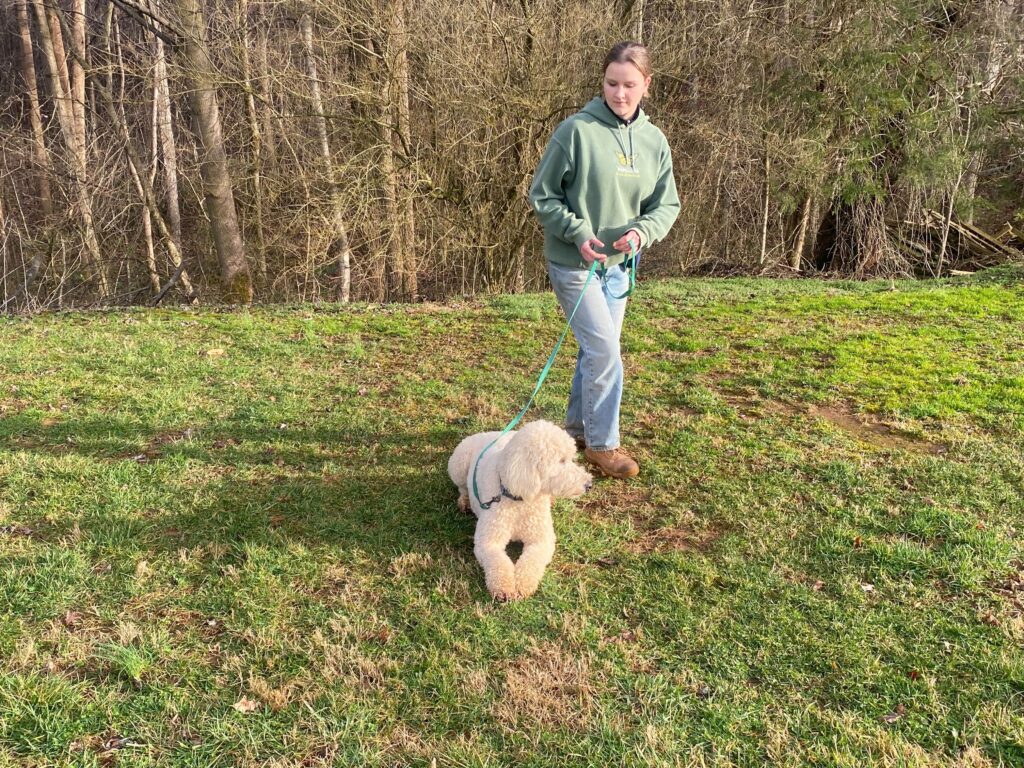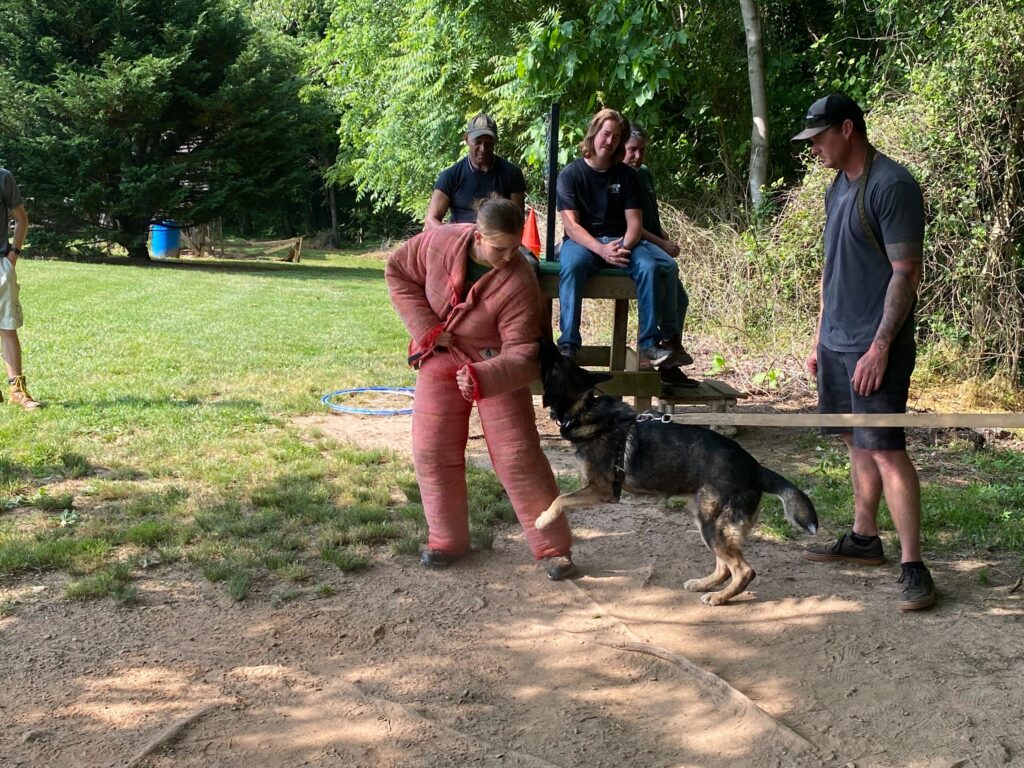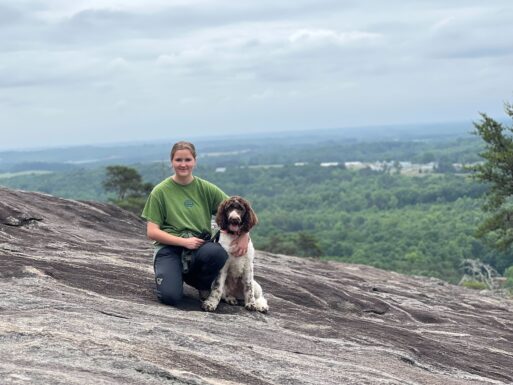Another year is flying by – can you believe we’re already approaching August? Before you know it, the leaves will be turning, snow will be falling, and we’ll be within sight of the New Year…
It has already been a notable and eventful year here at the School for Dog Trainers. In addition to welcoming numerous dog trainers to our programs at our Main Campus in North Carolina and Southeast Campus in Alabama, we were also excited to launch our new Hill Country Campus in Texas. This new campus will specialize in offering our Service Dog Trainer program. We can’t wait to see the difference the graduates at the Hill Country Campus will make to the lives of people right across the globe who require the help of assistance animals.
As the sun beats down here in North Carolina (and the heat approaches record levels across the rest of the Northern Hemisphere), January seems like a lifetime ago. However, almost eight months ago, students at our Main Campus started their Master Dog Trainer program studies. This intensive six-month program covers all aspects of the world of dog training, from helping students to understand the theory of canine behavior, to providing hands-on interaction with a wide variety of dogs. The curriculum also teaches students how to run their own dog training business, including the fundamentals of marketing a dog training business and other business operations. Our Master Dog Trainer program is offered twice per year at our Main Campus.
A member of our January 2023 Master Dog Trainer class was Mallie Welch. From the United Kingdom, Mallie was the recipient of our International Scholarship – which enables the recipient to attend the Master Dog Trainer program.
What is the International Scholarship?
Our International Scholarship was launched as part of our global mission to empower the next generation of professional dog trainers to build successful human-canine relationships around the world. The Scholarship is awarded once per year, and provides the recipient with the opportunity to attend our Master Dog Trainer program.
To be eligible for the International Scholarship, applicants must meet the following criteria:
- Be a citizen of a country other than the United States.
- Be at least 18 years old.
- U.S. citizens living abroad are not eligible.
Our International Scholarship generates significant interest each year. Applications close on December 15 annually, with the winner notified on January 1 of the following year. For more information on applying for the International Scholarship, visit our dedicated page.

Mallie’s experience at the School for Dog Trainers
Prior to attending the Master Dog Trainer program at the School for Dog Trainers, Mallie told us she was excited to begin her studies. In particular, she was looking forward to embarking on the course so that she could use her knowledge in the future to help with anti-poaching efforts in Africa.
To get her perspective on what it meant to study at the School for Dog Trainers, we caught up with Mallie for a quick Q&A as she completed her program.
Mallie, what was your favorite part of the Master Dog Trainer program?
I think my favorite part of the program was definitely the detection and trailing sections. I loved the service dog training – and being able to foster service dog prospects was amazing.
Did the course live up to your expectations?
Yes it did. It was incredible to have so much involvement with the dogs, and I have definitely learned so much more than I was expecting.

What are the main differences you have noticed between the dogs you have encountered in the US, and the dogs back in the UK?
I have only noticed slight differences in the breeds of dogs in the US compared to the UK. I think the main difference I have seen is the style of training, I’d never heard of most training tools before coming here. Another difference is Gun dogs in the UK are extremely popular, and I was surprised it isn’t as popular in the US.
Has there been any difference you have noticed in attitudes towards dogs in the US, compared with the UK?
Yes, I was surprised at the amount of dogs you see roaming free or chained up outside here in the US. It is pretty uncommon to see this in the UK, usually only working dogs are left to free roam.
I have noticed that it is a lot more common to have dogs in the US for a specific purpose – guard dog, service dog, working dog for example.
What are your plans upon returning home? How will you use your new-found knowledge?
I would still like to go back to Africa and train dogs for anti-poaching. I intend to use the knowledge I’ve gained in detection and trailing. I also love the idea of training dogs to be in films and advertisements.
What would you say to anyone thinking about applying for the International Scholarship?
I would tell them to go for it! I never thought there was a chance of me getting it, but my family pushed me to apply and it worked out. It is a once in a lifetime opportunity that you definitely shouldn’t miss out on.

